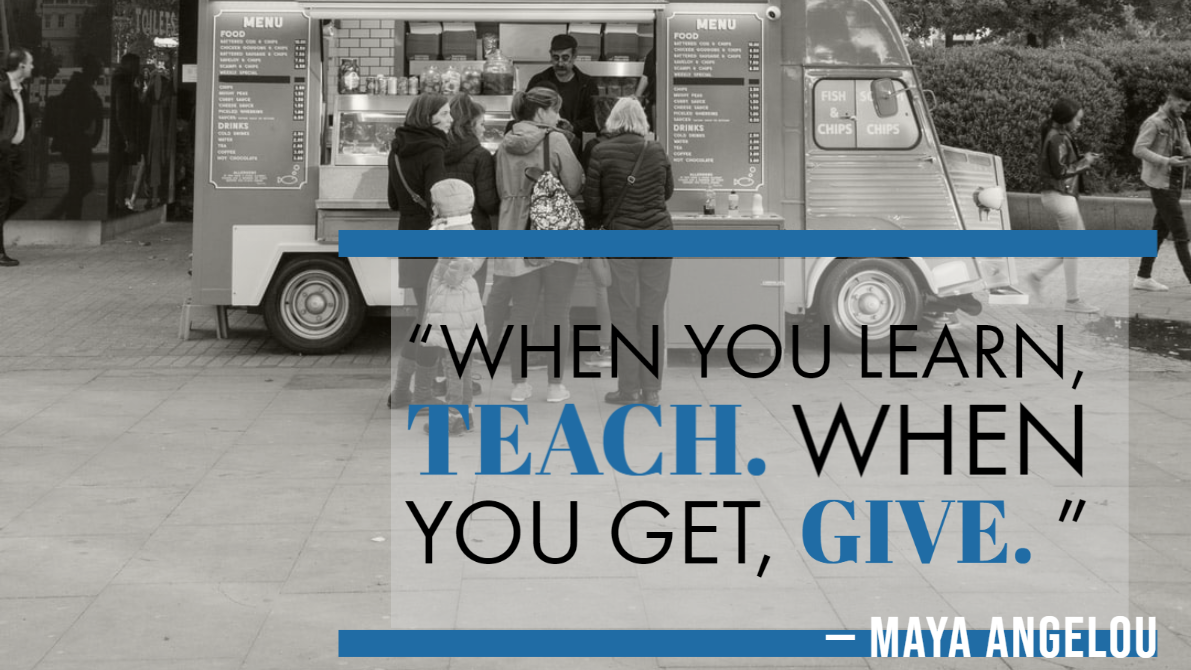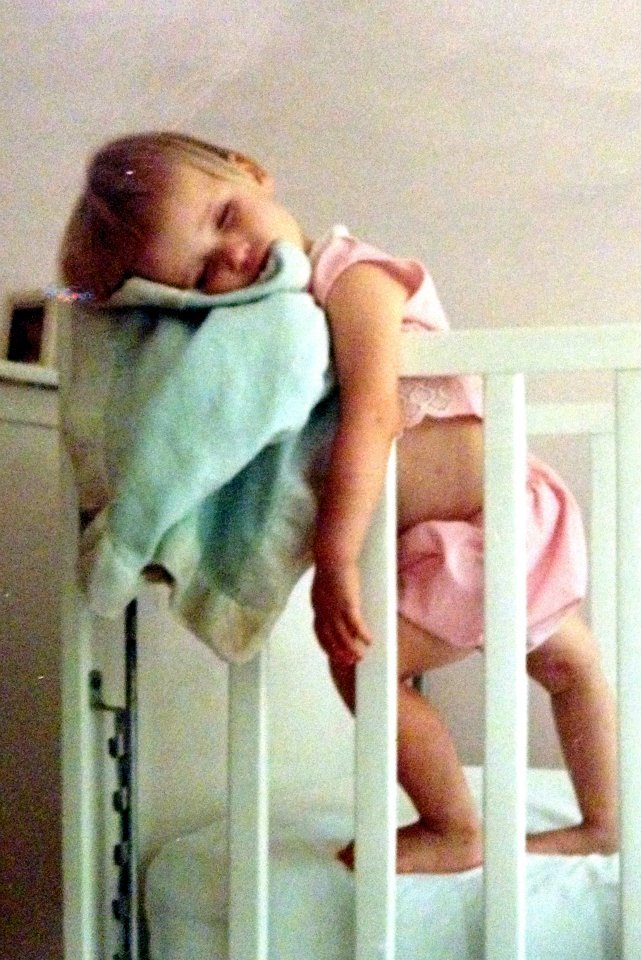Paying it Forward

Paying it Forward
“When you learn, teach. When you get, give.” — Maya Angelou
♦♦♦
“Excuse me, could I save you some money?”
A little unsure of the man approaching me, I hesitated.
“No, I want to give you some points to use on your gas.”
15 gallons later, I had paid a mere $7.35 to fill my tank. The man with all the points had accumulated more than he would be able to use before they expired, so he waited in his car for customers to arrive in order to offer each person $1.00 off every gallon of gas they were buying. His generosity saved me $15.00 at the pump that day. I was humbled and grateful because we think about expenses like that. It’s easy to get caught up in our own worries and struggles at a time like this, which makes Angelou’s reminder so vital — whether you are the one being taught or the one doing the teaching, the one being gifted or the one doing the giving, we are living in a time where paying it forward means more to each of us than we might expect.
Paying it forward didn’t start recently. It was in Turkey, apparently hundreds of years ago, that the tradition of askıda ekmek began. That is literally bread hanging on a hook for someone to take who can’t afford to pay (usually paid for by someone else who paid for two loaves and only took one). It is a treasured tradition that is similar to the Italian tradition of affè sospeso (suspended coffee). It began long before people at Starbucks paid for the order of the person behind them in line, and both practices are born of good intentions and human kindness.
Why does it feel so good to be the recipient of such an act of kindness, and why does it sometimes feel even better to be on the giving end? It’s a wiring issue — in our brains, that is. Research (several studies Dr. Stephen Post, Dr. David Hamilton, University of British Columbia, to name a few) shows the amazing benefits to our health when we do nice things for people, as well as when we experience other people’s gifts. The special thing about kindness is it’s contagious, and that’s one thing we could all stand to catch today.
As I write this, half the world is following safer at home orders. How do we pay it forward when we are feeling strapped for cash, stuck at home, and really not sure of what kindness we might offer? I guess it depends on your personal situation. Some people are still going to work, many people are going to drive-thrus to pick up food, and most everyone has closets and even garages they might be wanting to clean out while stuck at home. In each of those cases, there is someone you and I can help.
- In the drive thru, pay for the person behind you. If that’s more than you can do, maybe you can offer to pay $5 of their check.
- If you go to the grocery, take wipes and look for someone who needs their cart taken back to the store.
- Check with Domestic Violence Center and/or a homeless shelter to see if they need household items or clothing. Then go through your own things to see if there are items you aren’t really using — what a gift for someone else!
- Have you had a great experience with a restaurant or other business during this stay-at-home time (or any other time)? Why not hop online and leave a great review through Google or directly on their site or social media page to help build their good standing?
- Stuck at home? Not feeling inspired to dive into the myriad of available projects in your own home? It’s a great time to pick up the phone and call people you’ve lost touch with just to see how they are doing. Not a big phone person? Pull out your pen and paper because almost everyone appreciates a note with kind words.
Do you see how this works? It’s too easy to get caught up in the unkindness on social media or the uncertainty in the news — things over which we just do not have any control. Maybe you can take a week to unplug from social media and plug in to people. There is no time like right now to pay it forward to people who might need your kindness more than you know. If you have children with you, you’re probably engaged in distance learning, and this is a great time for them to learn about paying a kindness to someone else. Maybe you’d like to take time to offer thanks to a teacher who has made this a more bearable adventure. Maybe you’d like to use this opportunity to ask your local coffee shop or bakery if they would consider offering suspended coffee or bread options for those wanting to pay it forward for someone who might be short of cash.
Food banks and blood banks are in need of what you and I might be able to offer. With 22 million people out of work, people who never thought they would need assistance find themselves needing food. If you are in a position to volunteer with your local food bank and/or to donate money for them to purchase food, they need you — they need each of us. Where I live, people can contact Second Harvest to donate or to volunteer. Did you know that Second Harvest provides more than 2 million meals annually for Rutherford County children, seniors and families who struggle with hunger? The Red Cross doesn’t need to worry about running out of blood or platelets. They are prepared for us to be donors during this pandemic. Get in touch and see how you can help pay it forward for something you might need for yourself one day.
The word that continues to come to me as I have had my own experience with kindness and am pleading for us all to pay it forward where we are able, is generosity. The generosity of a stranger who met me at the gas pump left me feeling generous to fill the tank of the young man across the way. Your generosity will inspire someone else, and the chain will continue. This is our time to hang a loaf of bread, suspend a cup of coffee, and give from what we have to those who probably never expected to be in need. When you learn, teach. When you get, give. Let’s pay it forward today.



